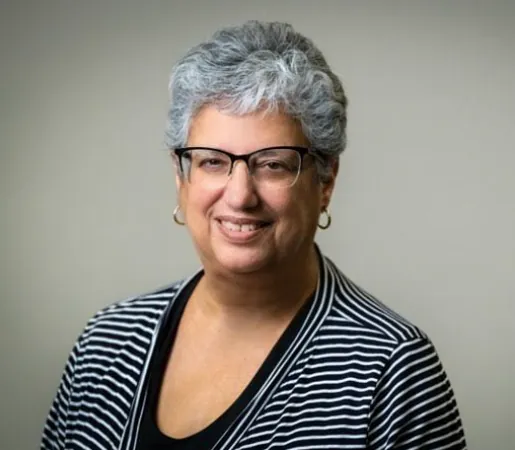
Unveiling the Hidden Truths of Celiac Disease: Dr. Debra Silberg's Call for Action
2024-11-11
Author: Arjun
Introduction
Celiac disease continues to be an underdiagnosed condition, particularly among patients aged 20 and younger, as alarming new research highlights significant disparities tied to age, race, and ethnicity. This essential study was presented at the 2024 Annual North American Society for Pediatric Gastroenterology, Hepatology, and Nutrition (NASPGHAN) Meeting, held from November 7 to 9, 2024, in sunny Hollywood, Florida.
Current Screening Guidelines
According to established guidelines, physicians are encouraged to recommend celiac disease screening for patients exhibiting specific conditions, such as dental enamel defects or iron deficiency. However, Dr. Debra Silberg, MD, PhD, representing Beyond Celiac, expressed concern that not all healthcare professionals are adequately familiar with these vital guidelines.
The Importance of Education
The screening process for celiac disease is straightforward and non-invasive, typically requiring only a simple blood test. In the event of a positive result, an endoscopy may be necessary, but this is not always the case. Silberg emphasizes that physician education is crucial when it comes to identifying patients who should be tested for this condition.
Genetic Prevalence and Misconceptions
A particularly startling statistic is that around 20% to 30% of the overall population carries a genetic predisposition to celiac disease, and Silberg insists that this is not confined to any particular ethnicity or race but is a universal issue. 'Currently, we are discovering a notable prevalence of celiac disease in India,' Silberg remarked. 'Back in medical school, we were misled to believe it was primarily a Northern European disease. This outdated notion is difficult to shake, and we need a concerted effort in educating physicians to shift this paradigm.'
Challenges After Diagnosis
Dr. Silberg also pointed out that the major hurdles following a celiac disease diagnosis extend beyond just detection. The financial burden of maintaining a gluten-free diet often leads to food insecurity concerns, making it vital to address such issues among diagnosed patients.
Conclusions and Calls to Action
In her closing remarks, Dr. Silberg stressed the importance of disseminating celiac disease guidelines effectively: 'The guidelines are incredibly useful, but they must reach the right hands. It's essential that primary care doctors and family physicians have access to this information; it cannot be the sole responsibility of gastroenterologists. Often, patients will have already been misdiagnosed with another gastrointestinal issue by the time they see specialists.'
As celiac disease awareness grows, it is crucial that healthcare professionals actively educate themselves and support patients. The road ahead is not just about recognizing the disease but ensuring every patient has access to the information and resources they need to thrive.
Will we finally see change in how celiac disease is understood and treated? Only time will tell, but the call to action is clear!


 Brasil (PT)
Brasil (PT)
 Canada (EN)
Canada (EN)
 Chile (ES)
Chile (ES)
 España (ES)
España (ES)
 France (FR)
France (FR)
 Hong Kong (EN)
Hong Kong (EN)
 Italia (IT)
Italia (IT)
 日本 (JA)
日本 (JA)
 Magyarország (HU)
Magyarország (HU)
 Norge (NO)
Norge (NO)
 Polska (PL)
Polska (PL)
 Schweiz (DE)
Schweiz (DE)
 Singapore (EN)
Singapore (EN)
 Sverige (SV)
Sverige (SV)
 Suomi (FI)
Suomi (FI)
 Türkiye (TR)
Türkiye (TR)